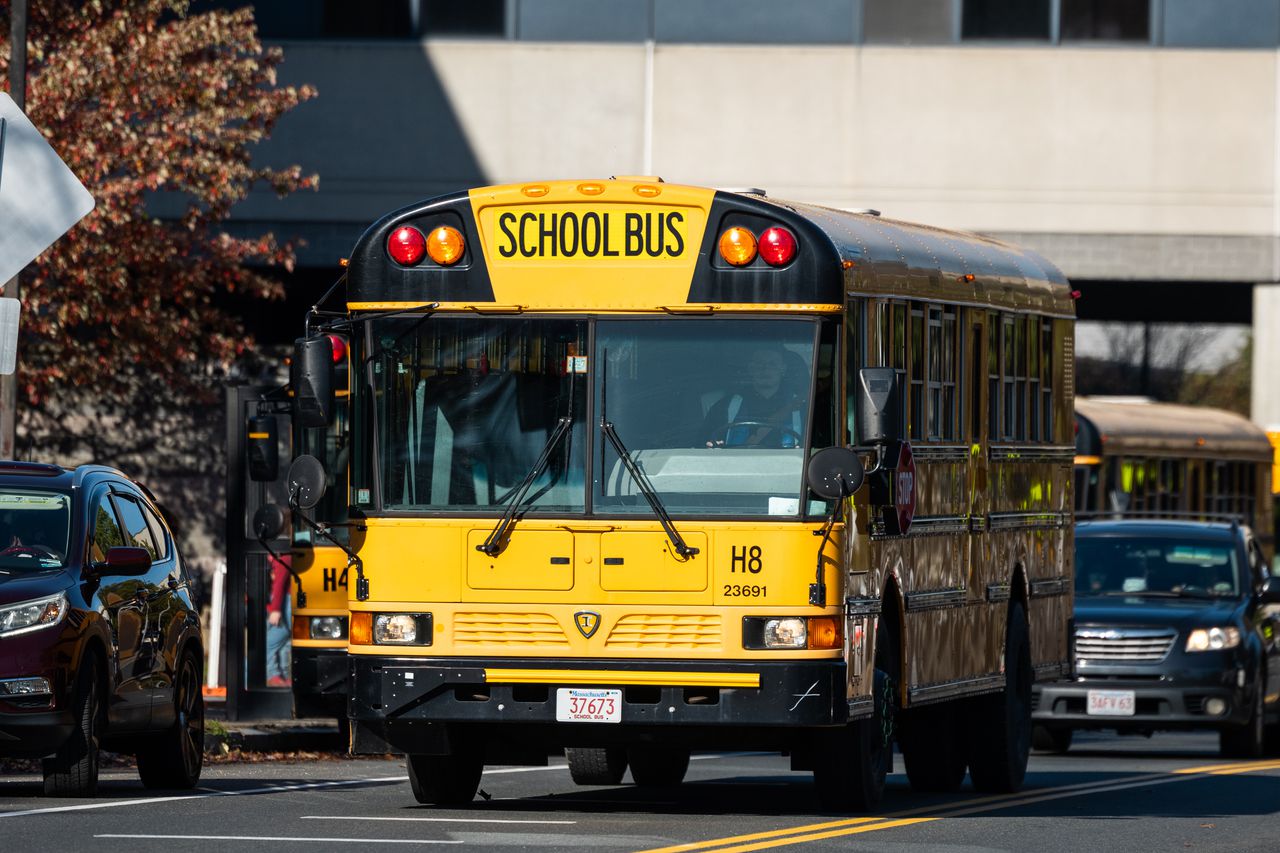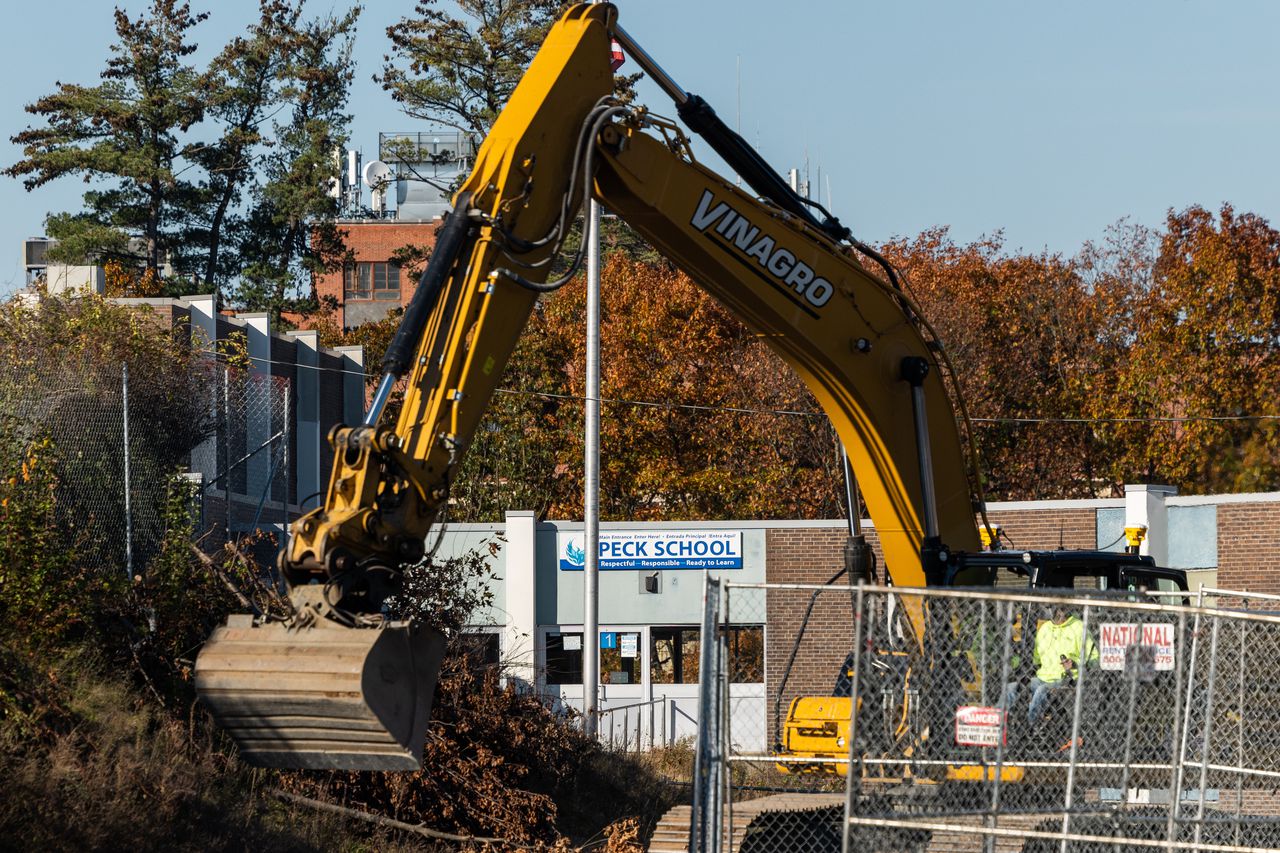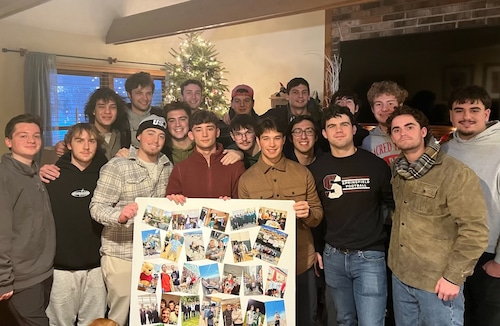HOLYOKE — Holyoke is one of three Massachusetts communities whose schools are run by the state. All want out of receivership.
The path, however, is murky.
The Achievement Gap Act of 2010 gave the Department of Elementary and Secondary Education the power to declare a district as chronically underperforming — and take charge of its schools. Since, then no districts have regained control, DESE spokesperson Jacqueline Reis said.
The state took over management of schools in Lawrence in 2011, in Holyoke in 2015 and in Southbridge in 2016.
In Holyoke, educators and administrators are revving up to regain local control. But Mildred Lefebvre, vice president of the Holyoke School Committee, says transitioning from state oversight is challenging because there is no specific language provided by the state on how to achieve that.
“It is not clear on what to do to get out of receivership,” Lefebvre said. “There is no guidance, timeline or benchmarks a district must meet.”
According to DESE, a district can leave receivership if it has made necessary progress and meets academic and other performance measures. The commissioner of education, Jeffrey C. Riley, decides. Riley is reportedly set to make a decision by spring. If Holyoke’s petition is approved, the district will be the first in the state to successfully close out receivership status.
Riley did not respond to a request from The Republican and MassLive for comment on the process.

A Holyoke Public Schools bus passes by Holyoke High School Dean Campus on Main Street. (Hoang ‘Leon’ Nguyen / The Republican)Leon Nguyen
Lefebvre was among Holyoke officials who met with Riley after petitioning in mid-September to end receivership. She said the district is preparing to take schools back by creating its own targets and goals. The committee is reviewing district policies, monitoring absenteeism, updating bylaws and making recommendations to the receiver.
The state designated Holyoke’s school system as chronically underperforming in April 2015, after student achievement fell to the bottom 10% of schools statewide. At the time, Holyoke schools also had the lowest graduation rate and highest dropout rate in any of the state’s K-12 districts.
Lawrence’s story
Jonathan Guzman, vice chair of the Lawrence School Committee, said that since the school district petitioned to end receivership a few months ago, it, too, navigated a process that was not presented clearly by state education officials.
“With no description or guide, it means that DESE is making up the rules as it goes because the laws are so vague on what needs to be focused on to get out of receivership,” Guzman said.
When declared underperforming, in November 2011, Lawrence’s district-wide performance in English and math were in the bottom 1% in the state and fewer than half of Lawrence’s students graduated from high school. A state review of the district found inconsistent governance and leadership.
The district’s first turnaround plan failed. “When DESE came in to work with the district, we were not given resources. We essentially had to do what we could with whatever we had,” Guzman said.
Recently, members of the school committee in Lawrence received training from the Massachusetts Association of School Committees on how to operate a school committee, for instance.
Southbridge’s story
When the Southbridge public schools were designated chronically underperforming in January 2016, it was due to low student performance over several years. Student achievement in Southbridge was among the lowest in the state overall for some categories. Many were in the bottom 10% of schools statewide and the district’s suspension rates were almost three times the state average.
Martena Shea, chair of Southbridge School Committee, said the state swooped in at a time when the district couldn’t keep a steady superintendent in office. “We thought the state would come in for a year-and-a-half and we would be out of it,” Shea said.
That didn’t happen.
“They (DESE) thought they would throw some money at us, give us a new curriculum and that would lead to a big change in student achievement,” Shea said. “You cannot solve systemic problems with money and new curriculum.”
All three districts deemed to be chronically underperforming share common issues, she notes. They are relatively poorer communities that lack affordable housing and have high populations of immigrants.
Bigger cities are home to universities and big businesses that contribute to taxes able to fund supplemental school programs, Shea said. That’s tough in Southbridge.
While Southbridge has not yet filed to end receivership, Shea said it will monitor Holyoke and Lawrence’s progress, as it develops a plan to adequately support learning on its own.
In addition to the three districts, DESE manages the affairs of three schools: UP Academy and Dever Elementary School, both in Boston, and Parker Elementary School in New Bedford.
Officials in the three communities all expressed frustration with the state.

Demolition is underway at William R. Peck School in Holyoke. (Hoang ‘Leon’ Nguyen / The Republican)Leon Nguyen
Lefebvre believes Holyoke schools could have turned their performance around without state intervention. The three districts in receivership all have high percentages of students of color, English language learners and special education students. The city was not getting adequate support from the federal government, she said.
DESE, she says, “should have been a partner to help HPS to attain its goals. Why not do it back then, before the schools were taken under receivership?”
Proposed legislation
Lacking what they feel are clear benchmarks, officials in Holyoke, Lawrence and Southbridge are attempting to find a way out of receivership through the pending THRIVE Act.
Lefebvre, who is also the president-elect for the Massachusetts Association of School Committees, said that organization may look at the Holyoke School Committee’s journey as a model to help other districts transition out of receivership.
Guzman, the Lawrence official, said he helped draft the Thrive Act, which is backed by teachers’ unions.
If passed, the measure would replace the Massachusetts Comprehensive Assessment System graduation requirement with competency assessments, eliminate state receiverships and reinstate control to communities and school committees.
Massachusetts is among eight states in the nation to require standardized testing as a graduation requirement, according to the Massachusetts Teachers Association.
Guzman said he wants people to understand the components of the act.
“The main thing is that people think that it’s getting rid of district accountability and that is not true,” Guzman said.
Guzman believes that students who go to class, do their work and pass each class should get a diploma because they earned it.
His own experience informs his views. Guzman came to Lawrence in 2010 from Puerto Rico, where he said he received high marks. But around Grade 9, Guzman was put in a special class because he was not proficient in English — and he could not pass the MCAS, he said.
“Because teachers were so focused on teaching to the test, they did not have time to stop and think about the English language learners. I came here to study biology to become a veterinarian,” Guzman said.
Guzman eventually passed the MCAS after repeated testing and earned a bachelor’s in biology from Framingham State University. He said he often thinks about barriers standardized testing creates for students like him.






